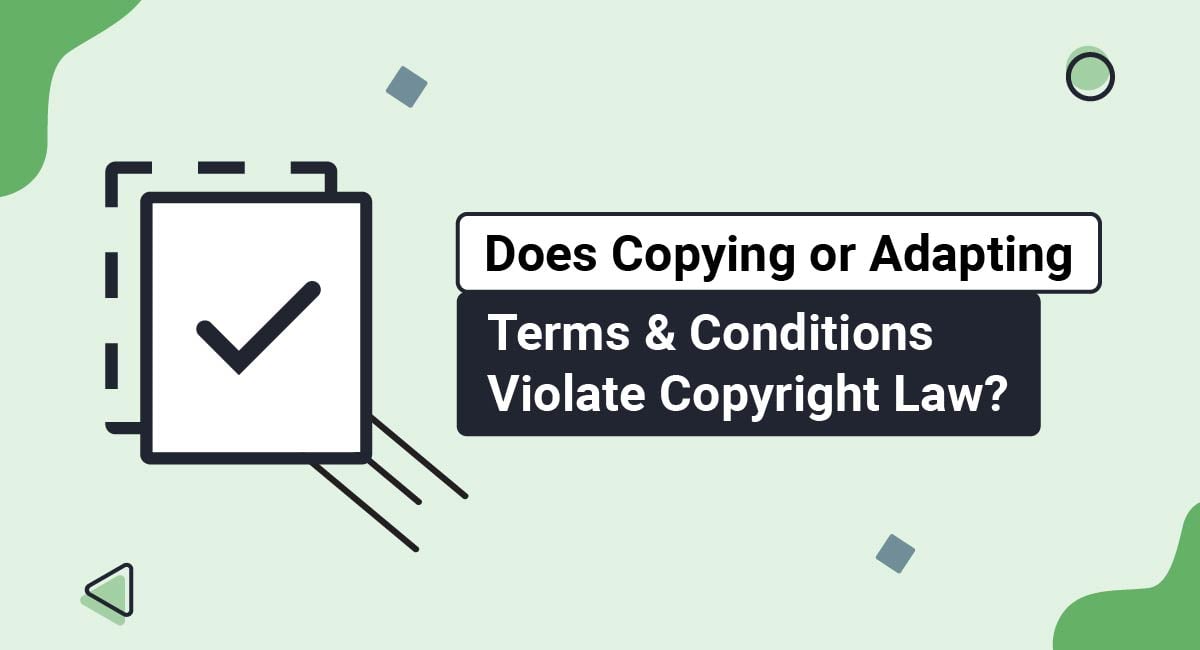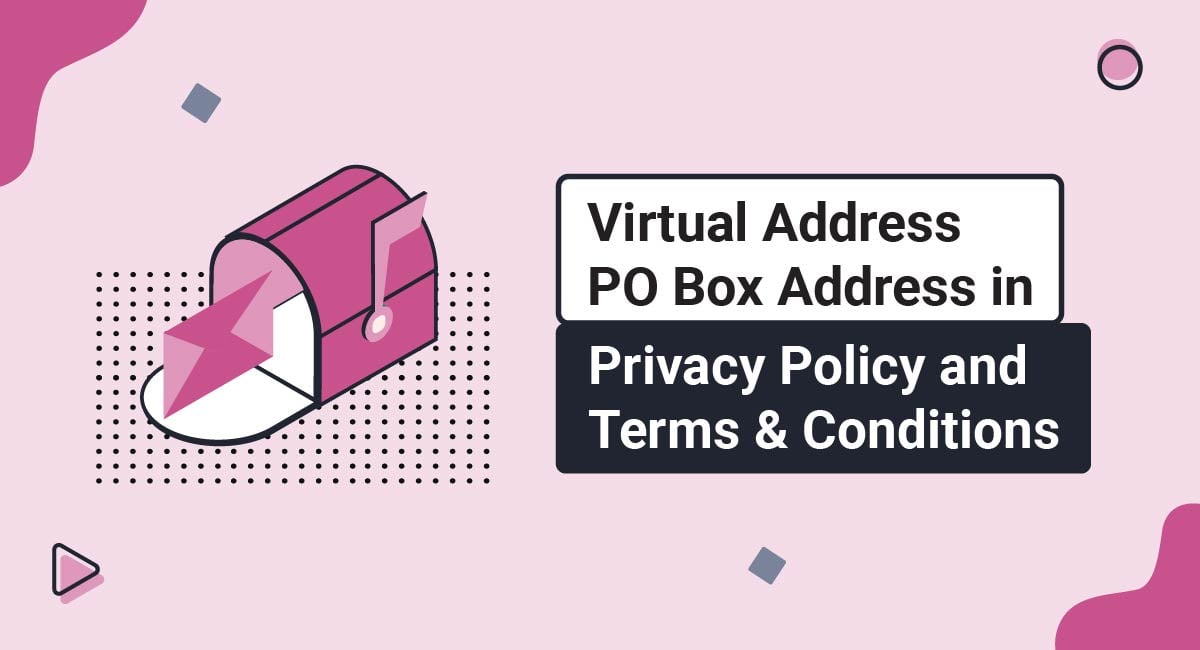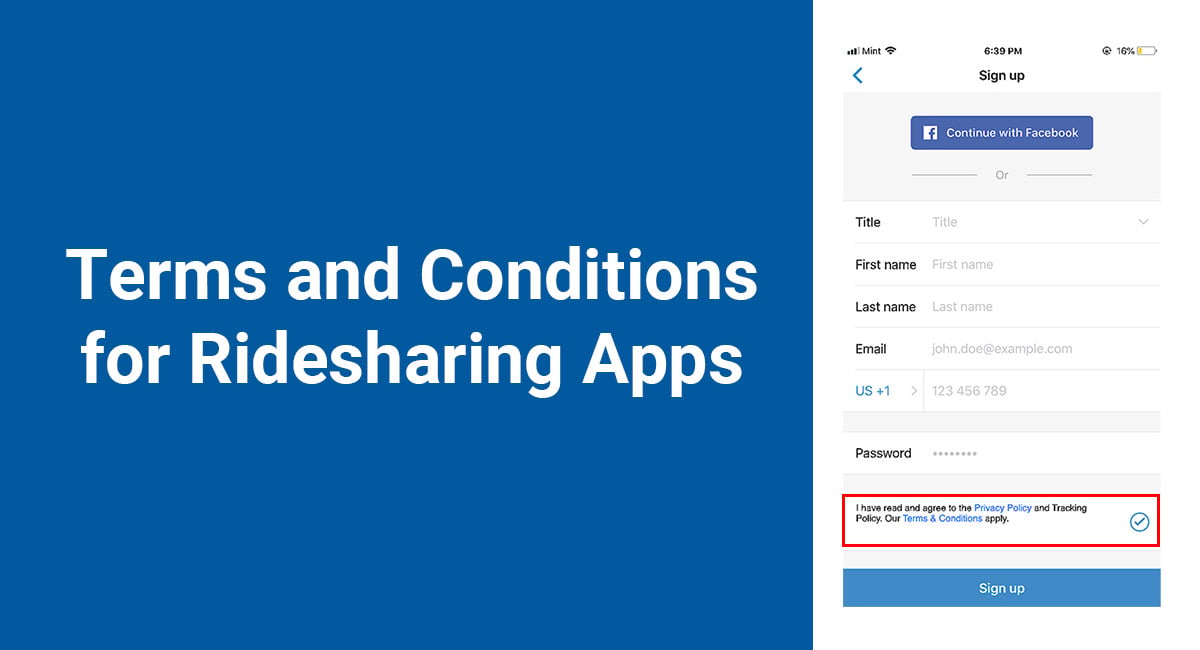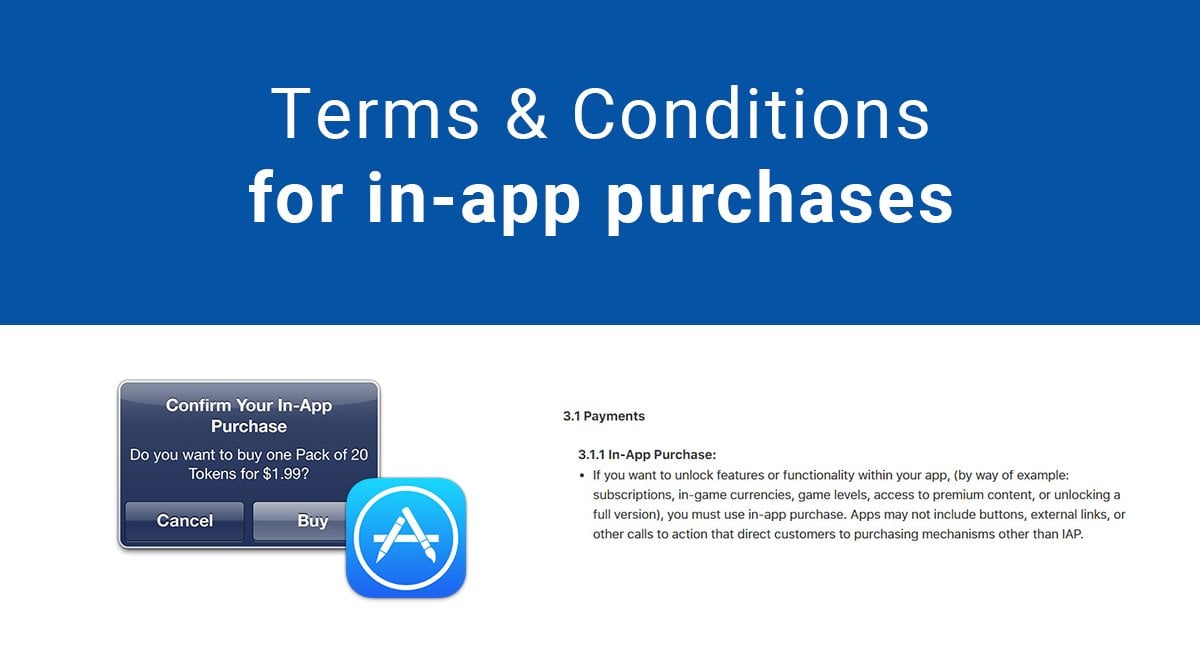Directly copying a Terms & Conditions agreement (T&C) exposes your company to legal risks in a few ways. First, copying an agreement word-for-word is likely a violation of copyright law. Secondly, even if you borrow an agreement from a competitor in your industry, it is likely that differences in location, policies, and other areas can prevent their Terms & Conditions agreement from actually being effective for you.
Using other Terms & Conditions agreements as models or templates is acceptable, however you still need to customize it to your own unique product or service.
This article will explain why and how copying a Terms and Conditions agreement may lead to legal issues, and what you can do instead.
Our Terms and Conditions Generator makes it easy to create a Terms and Conditions agreement for your business. Just follow these steps:
-
At Step 1, select the Website option or the App option or both.
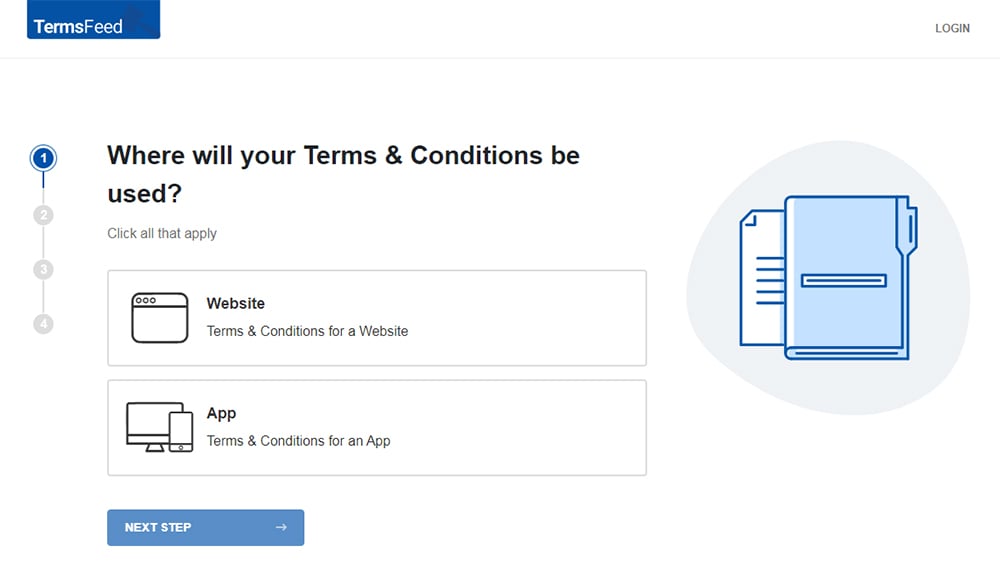
-
Answer some questions about your website or app.
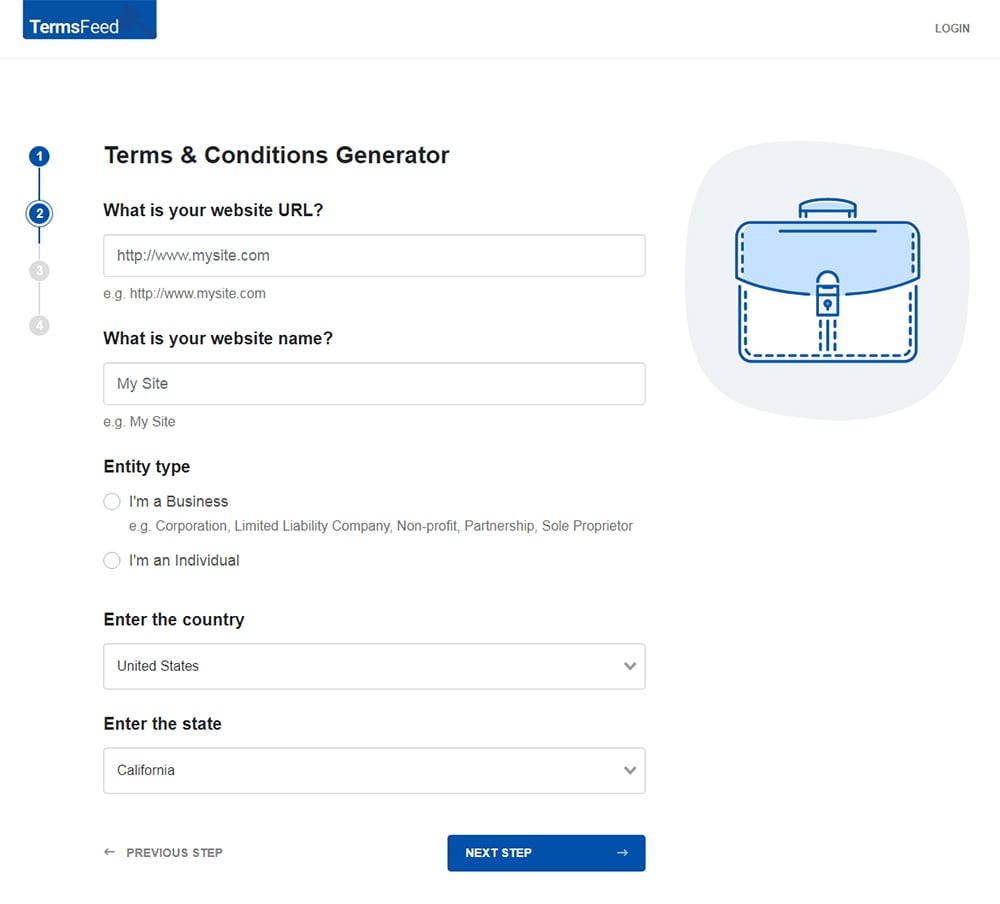
-
Answer some questions about your business.
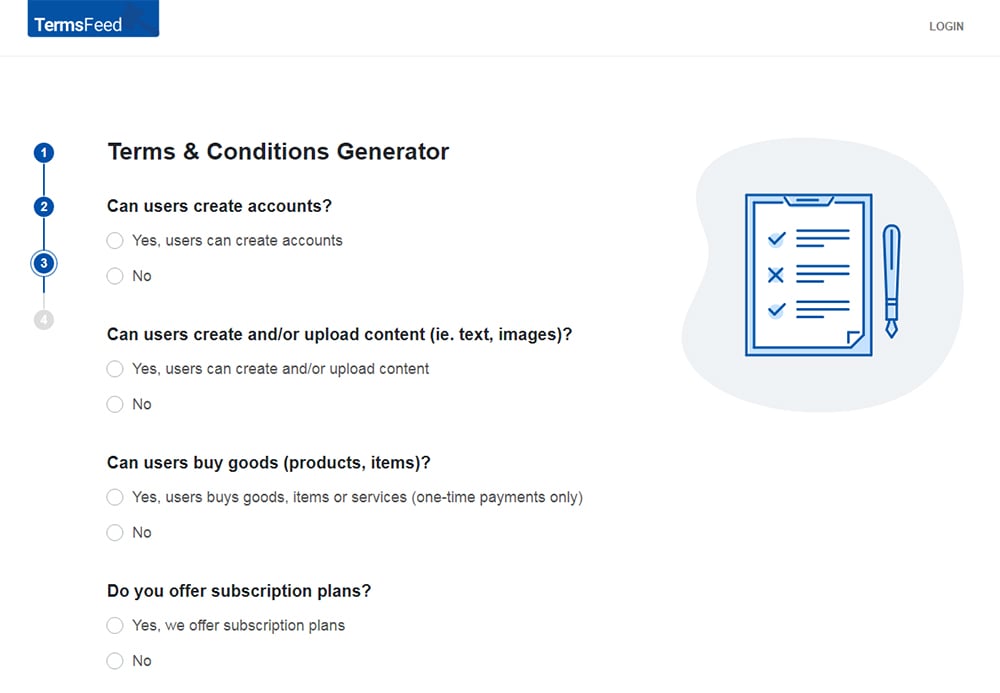
-
Enter the email address where you'd like the T&C delivered and click "Generate."
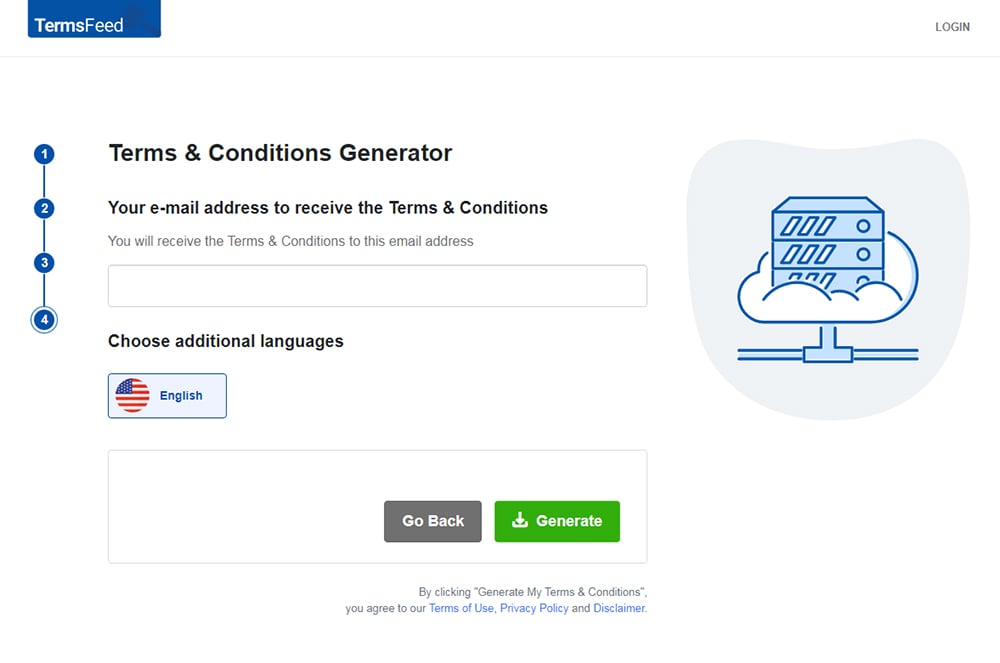
You'll be able to instantly access and download the Terms & Conditions agreement.
- 1. The Legality of "Borrowing" Others' Terms & Conditions Agreements
- 1.1. Copyright Law Overview
- 2. The True Hazards of Copying Someone Else's Terms & Conditions Agreement
- 2.1. Not Having Industry-Specific Content
- 2.2. Not Aligning With Your Business Model
- 2.3. Not Addressing Your Website's Functions
- 2.4. Miss Out on Benefits of Your Geographic Location
- 2.5. Not Addressing Explicit Content
- 3. Summary
The Legality of "Borrowing" Others' Terms & Conditions Agreements
Borrowing another's T&C is generally legal, but requirements under copyright law demand caution when you take this approach.
Terms and Conditions are often complex with a mixture of lay language and complex legal terms. This makes copying or "borrowing" another entity's agreement very tempting in order to save time and costs on legal fees.
However, we don't suggest you do this for reasons described below.
Copyright Law Overview

Copyright law protects original works of authorship. These include literary, written, dramatic, artistic, and other types of creative expression.
Copyrighted material is protected throughout the world. The U.S., UK, and Australia have their own copyright laws, with the U.S. and UK offering a system for registration. International treaties expand the reach of these laws. For example, if you register a copyright in the U.S. but find a user infringed on your content in the UK, the Berne Convention allows you to enforce your rights in the UK since both countries are parties to that treaty.
Works are considered protected upon creation. Registration is not required, but it simplifies the process if you face infringement. (The U.S. and UK offer systems for registration, but Australia does not.)
Companies and individuals display their copyright interests in several ways.
The most common practice is with a copyright notice in a website footer. Here is the one used by Focus @ Will:

Copyright and trademark disclaimers are another approach. Montclair State University has a separate webpage dedicated to its copyright notice and disclaimer:
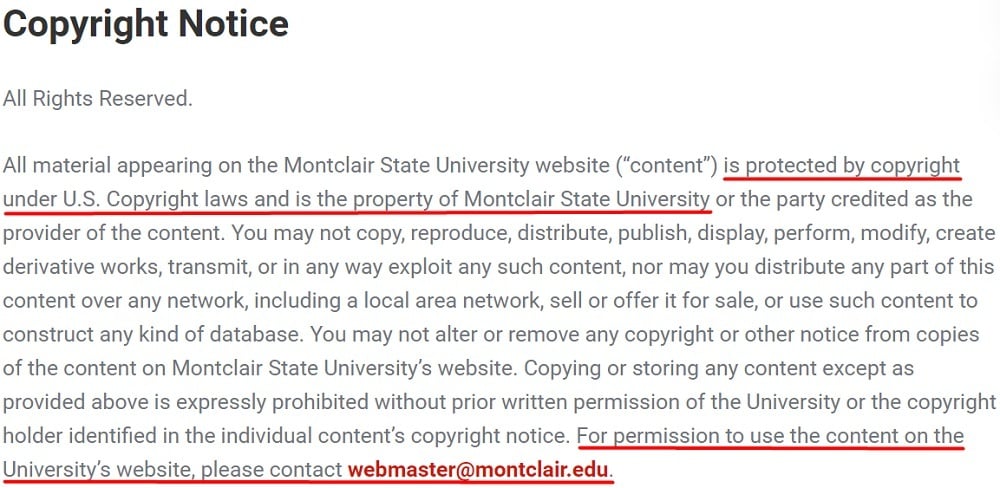
If a company owns several copyrights or handles protected material produced by users, it may have a separate Copyright Policy in place.
Good Eggs provides this policy alongside its Terms of Use, Privacy Policy and other important legal links:
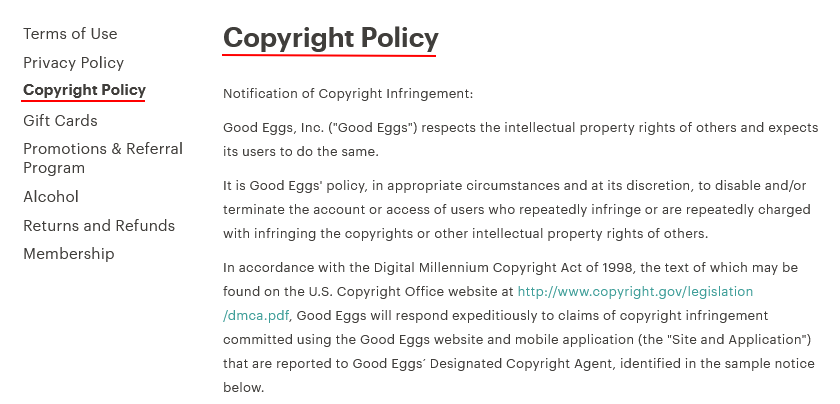
Other businesses choose to include copyright information in a T&C clause.
Amazon addresses copyright and other intellectual property interests in its Terms of Use.
However, it also provides links to lists of its interests so users are put on notice regarding its protected material:
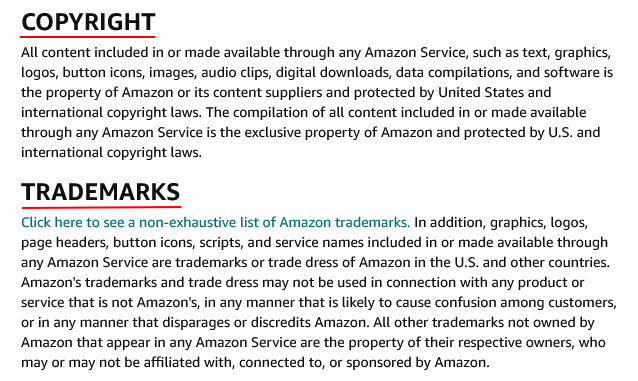
While no one would consider Terms & Conditions agreements creative expression, they could be considered unique content. A competitor who does not appreciate you taking their agreement and posting it on your website may attempt to disrupt your business with a copyright infringement claim. Even if they cannot prove the grounds for it, this ordeal will still be a costly one in terms of time and money.
You may avoid this possibility by making enough changes to an agreement that you can argue it was fair use. Critiques, paradies, and research fall under that exception. Making changes can create an impression of fair use or create a new agreement altogether so you may avoid an infringement claim.
The True Hazards of Copying Someone Else's Terms & Conditions Agreement

The T&C you borrow or copy may not be appropriate for your product or service. This can leave you open to legal liabilities.
Here is what you need to consider when you use an another company's T&C as the model for your own.
Not Having Industry-Specific Content
A website offering legal information has different considerations than a health or fitness website. These entities would not have interchangeable T&C's.
FindLaw offers legal news articles and an attorney search service. It is easy to imagine a user taking law summaries and articles written by attorneys as legal advice. That makes this provision especially important in its T&C:

WebMD also provides information that could be construed as professional advice. However, the nature of its information is medical, not legal.
The disclaimer in its T&C is worded differently:
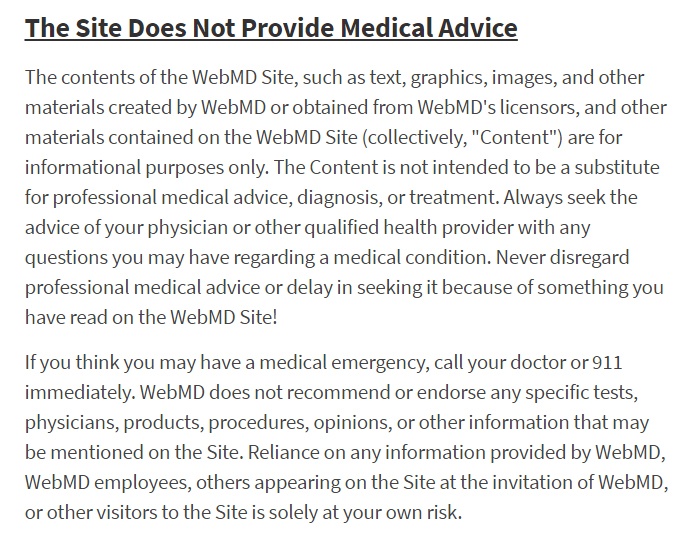
Liability potential is similar in that each site could be mistaken for professional advice. However, since they deal with different industries, their T&C disclaimer language is not the same. There are subtle differences unique to each profession.
Likewise, if your website sells clothing and you decide to borrow a T&C from your friend's fitness business, there is likely to be little in common to make that document useful to you. You are better off reviewing the T&C of another small clothing retailer, or even better, using a T&C Generator to draft your agreement from scratch.
Not Aligning With Your Business Model
Your business model defines your practices and methods for becoming profitable. If you are an online retailer that is operated by three people who all work from home, Amazon's T&C is unlikely to be help you. As a multinational corporation with hundreds of warehouses and many product classes, it has different needs than a small business that sells a very specialized product.
You may offer a more generous return policy or maintain a community where customers share experiences and offer your company feedback. Some of Amazon's general retail provisions may assist you, but you also have to work in your return policy and consider adding rules of community conduct so that platform remains productive.
Not Addressing Your Website's Functions
T&C's are based on the main functions of your app or website. For example, if your service offers a monthly subscription, you will need to include payment terms. Apps or websites that encourage user-generated content must maintain a T&C addressing content ownership and management. Copying another's Terms can mean that you miss this information.
Including payment terms when your platform is free or keeping another entity's extensive section on user-generated content when your function is monthly subscriptions for clothes or make-up will only cause confusion.
T&C agreements with useless provisions are less likely to be enforceable too since mistakes like this are always construed against the drafter. If one section of your agreement cannot be taken seriously, that will affect any other sections under dispute.
Exclusion of needed provisions is much more dangerous. A dating app, for example, carries a high potential for users to abuse others. If you want the authority to remove troublesome users, you must address prohibited content and conduct.
Tinder offers a long list of what will lead to a user being removed from the service:
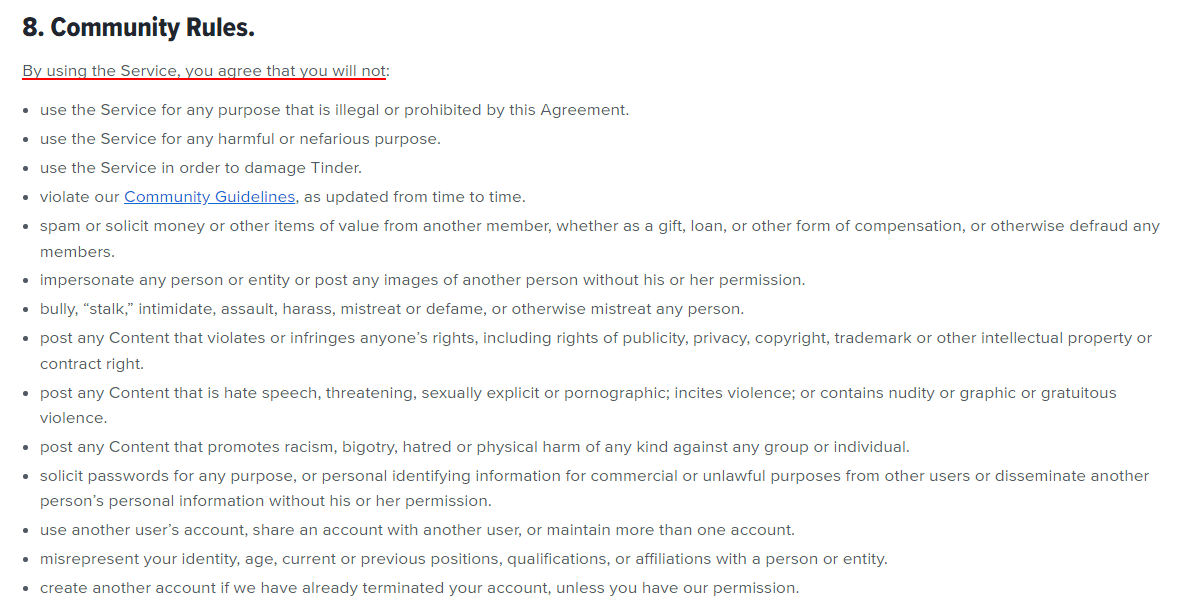
Now consider Oracle, a software-as-a-service with little interaction between users. It does not face the same risks as Tinder so its section on prohibited uses is much shorter:

If you use another agreement as the basis for your own, do not just consider what to remove from it. You also need to know when to add provisions.
Miss Out on Benefits of Your Geographic Location
Choice of law limits where users can bring legal disputes. Without a personalized clause on this, you can be forced to partake in lawsuits in geographic regions that your business has no association with, and that are inconveniencingly far away.
It can also be labeled as "Governing Law" as in this example from Pandora:

It is easy to see how skipping over this part could prove inconvenient at the very least. If you copy a T&C from an Australian company and fail to edit this portion, you may be forced to face a lawsuit in Australia, even if you are located in North America.
Not Addressing Explicit Content
The U.S. and Canada maintain laws restricting the availability of explicit content to children. If your website or app contains this content, you need to have a process on your website that verifies age.
You also need to make it clear in your T&C that your website is not directed to those under 18, much like Tinder does here:
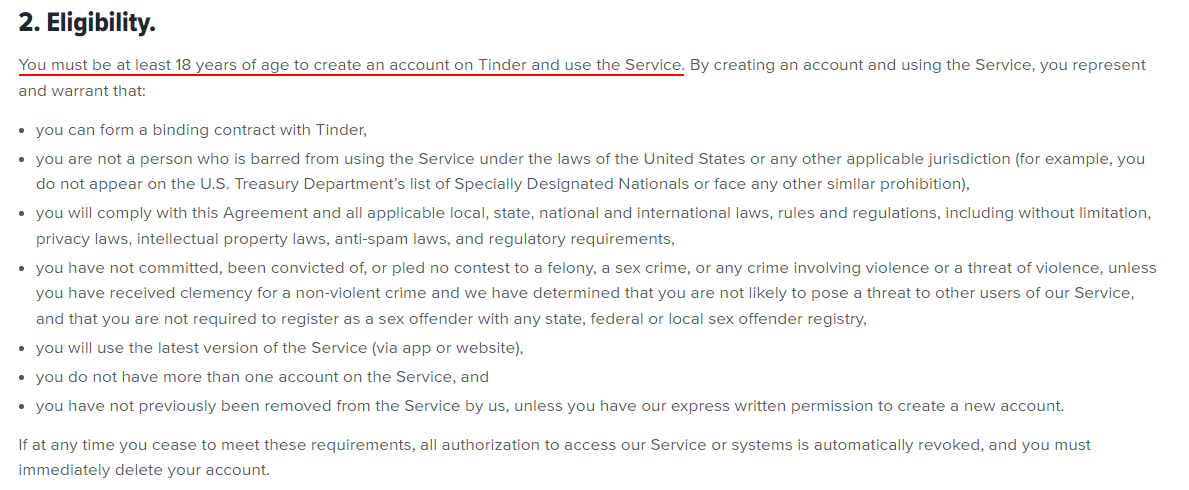
Without a verification process that shows good faith to prevent access by children and a strong T&C that backs this up, you could face serious fines and even criminal prosecution in the U.S. and Canada. If this is your business model, your T&C must be better specialized than other product or service providers who do not handle explicit content.
Summary
While it may be tempting to copy a T&C directly, it's not recommended for a number of reasons. It may expose your website or app to dangers such as copyright infringement accusations, but it is more likely that you will face legal liability for different reasons. You will also not appropriately be able to control the use of your site or service, since your terms won't be customized for your needs.
Err on the side of having a customized T&C that is as unique as your business if you want to get the most out of this document and limit your liability as best as possible.

Comprehensive compliance starts with a Privacy Policy.
Comply with the law with our agreements, policies, and consent banners. Everything is included.
